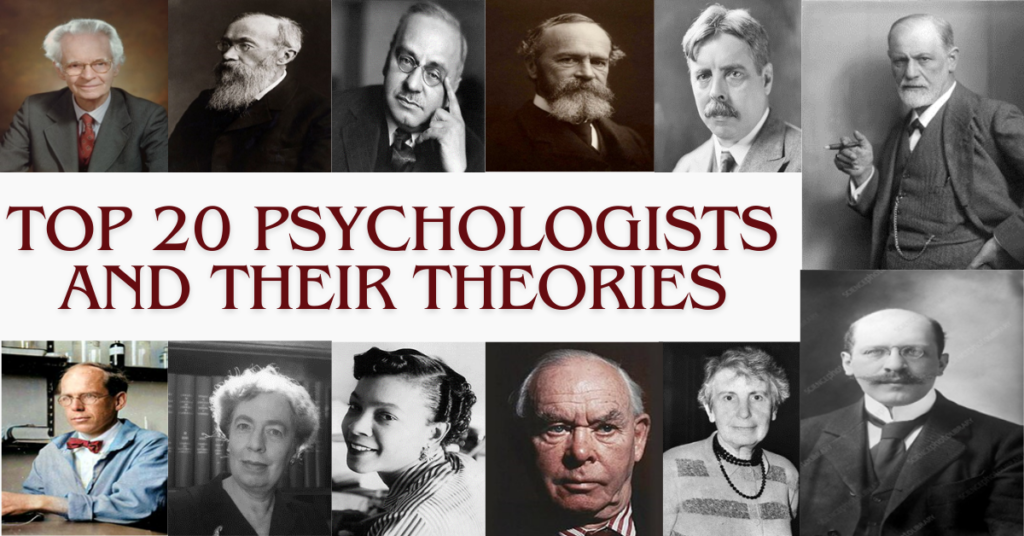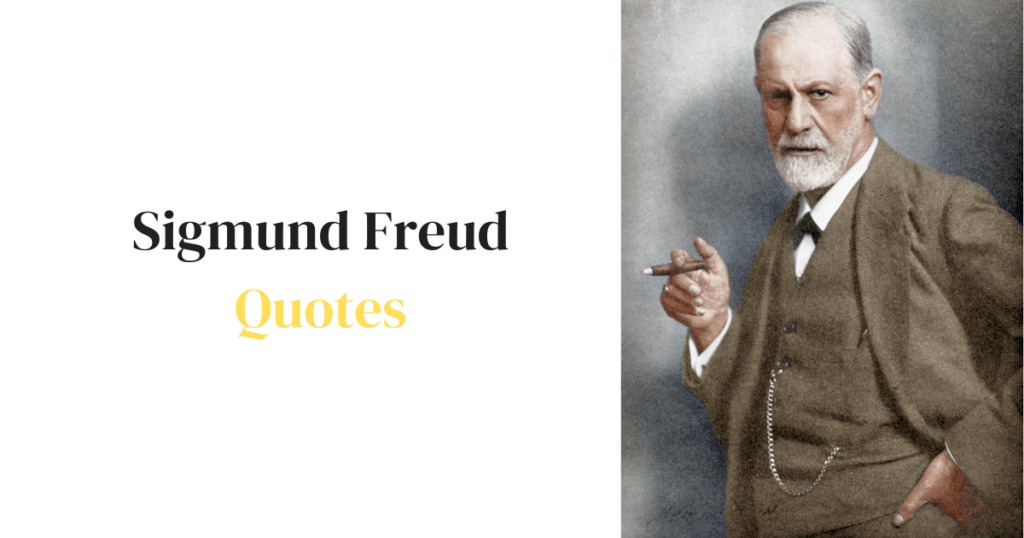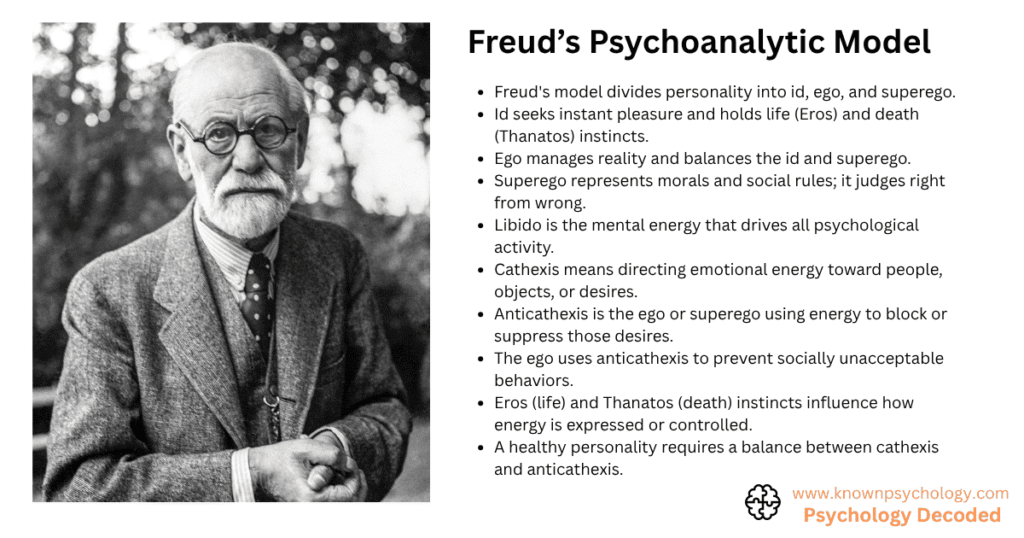
Many famous psychologists and their theories have significantly influenced us throughout history. Each uniquely contributed, enhancing our understanding of human behavior and mental processes.
This blog will detail their names, backgrounds, and contributions to psychology.
List of 20 Famous Psychologists and Their Theories
1. B. F. Skinner (1904-1990)

B.F. Skinner, a renowned American psychologist, significantly contributed to behaviorism.
He gained fame for his pioneering work in operant conditioning, focusing on shaping behavior through consequences. Additionally, his research and theories profoundly impact psychology, applying in diverse fields like education and animal training. Moreover, his work established the foundation for understanding how rewards and punishments influence human and animal behavior.
Important Contributions
- Behaviorism
- Operant Conditioning
- Shaping in Psychology
2. Wilhelm Wundt (1832-1920)

Wilhelm Wundt, a pioneering German psychologist, famously established the first psychology laboratory at the University of Leipzig in 1879. He is known as the father of experimental psychology because of his significant contributions the field. His work primarily focused on studying the conscious experience. Additionally, he developed introspection to explore the mind’s inner workings. Consequently, his contributions laid the groundwork for modern psychology. This has profoundly shaped our understanding of human cognition and perception today.
Important Contributions
- Structuralism
- Introspection
- Experimental Psychology
3. Alfred Adler (1870-1937)

Alfred Adler, an influential Austrian psychiatrist and psychotherapist, significantly contributed to psychology. He founded individual psychology, focusing on understanding each unique person’s experiences and motivations. Adler maintained that personal goals and feelings of inferiority propel behavior, underscoring social and familial impacts on psychological development. His influential ideas continue to be studied and utilized in various therapeutic methods.
Important Contributions
- Birth Order
- Inferiority Complex
- Belongingness
- Individual Psychology
4. William James (1842-1910)

William James, a prominent American philosopher and psychologist, was born in 1842 and died in 1910. He played a pivotal role in developing pragmatism, a movement emphasizing beliefs’ practical consequences. Additionally, James was instrumental in establishing modern psychology in the United States. His significant contributions spanned psychology, philosophy, and education. Notably, his works like “The Principles of Psychology” and “The Varieties of Religious Experience” continue shaping these disciplines. Thus, James remains a foundational figure in American intellectual history.
Important Contributions
- Functionalism
- Pragmatism
- Radical Empiricism
5. Edward Thorndike (1874-1949)

Edward Thorndike, an influential American psychologist, is widely recognized for his pioneering work in learning theory and educational psychology. Born in 1874, Thorndike’s research laid the foundation for studying animal and human behaviour, particularly in the context of learning and problem-solving. He is most famous for formulating the Law of Effect, highlighting the importance of rewards and punishments in shaping behaviour. Thorndike’s work has had a lasting impact on educational practices and understanding of how individuals acquire new skills and knowledge.
Important Contributions
- Law of Effect
- Behavioral Modification
- Educational Psychology
6. Sigmund Freud (1856-1939)

Sigmund Freud, born in 1856, was an Austrian neurologist and the founder of psychoanalysis, a groundbreaking approach to understanding the human mind. Freud’s work revolutionized psychology and introduced concepts like the unconscious mind, the Oedipus complex, and defense mechanisms. He emphasized the role of unconscious desires and childhood experiences in shaping adult behavior and personality. Freud’s theories and techniques have had a profound and lasting impact on psychology, psychiatry, and psychotherapy, influencing how we perceive and treat mental health and emotional well-being.
Important Contributions
- Psychoanalysis
- Id, Ego, Superego
- Unconscious and Conscious Mind
- Oedipus Complex
- Cathexis and Anticathexis
- Life and Death Instincts
- 5 stages of Psychosexual Development
- Dream Analysis
- Repression
- Religion
- Women and Penis envy
7. Hugo Münsterberg (1863-1916)

Hugo Münsterberg, a German-American psychologist born in 1863, was a pioneer in the field of applied psychology. He significantly contributed to areas such as forensic psychology, clinical psychology, and industrial-organizational psychology. Münsterberg’s work focused on applying psychological principles in various real-world contexts, such as legal proceedings, personnel selection, and vocational guidance. His research and writings laid the groundwork for integrating psychology into practical fields, shaping how psychology is used to address everyday challenges and issues.
Important Contributions
- Applied Psychology
- Forensic Psychology
8. James McKeen Cattell (1860-1944)

James McKeen Cattell, an American psychologist born in 1860, was a prominent figure in the early development of psychology as a scientific discipline in the United States. He played a crucial role in establishing psychology as an empirical and experimental field, and he was among the first psychologists to use objective measurements and quantitative methods in his research.
Cattell’s work covered various topics, including mental testing, individual differences, and cognitive psychology. He also founded the journal “Psychological Review” and was a key advocate for using statistical methods in psychology, impacting the field’s methodology and growth.
Important Contributions
- Scientific Psychology
9. Mary Whiton Calkins (1863-1930)

Mary Whiton Calkins, born in 1863, was a prominent American psychologist who made significant contributions to psychology, particularly in memory research and self-psychology. She was the first woman to become the American Psychological Association (APA) president in 1905, breaking barriers for women in the field. Calkins is well-known for her work on the paired-associate technique in memory studies and her development of the self-psychology theory, which explored the concept of the self and its relation to mental processes. Her pioneering efforts paved the way for women in psychology and left a lasting legacy.
Important Contributions
- First Woman President of the APA
- Self-Psychology
- Paired-Association Technique
10. Mamie Phipps Clark (1917-1983)

Mamie Phipps Clark, born in 1917, was a distinguished African-American psychologist who contributed significantly to understanding racial segregation and its effects on children’s self-esteem and identity. Along with her husband, Kenneth Clark, she conducted the famous “Doll Test” studies in the 1930s and 1940s, which provided critical evidence for the landmark Brown v. Board of Education Supreme Court case that led to the desegregation of American schools. Mamie Phipps Clark’s work highlighted the psychological harm caused by racial segregation and played a pivotal role in the civil rights movement. Her advocacy for equality and social justice continues to inspire and influence the field of psychology today.
Important Contributions
- Research on Race
- Research on the Effects of Segregation
11. Anna Freud (1895-1982)

Anna Freud, an Austrian psychoanalyst and Sigmund Freud’s youngest daughter, significantly advanced child psychoanalysis. She is renowned for her studies on child development, defence mechanisms, and ego understanding. Founding the Hampstead Child Therapy Course and Clinic in London, she provided vital resources for treating emotionally and psychologically troubled children. Her groundbreaking insights have profoundly influenced child psychology and psychotherapy, shaping the field enduringly.
Important Contributions
- Defense Mechanisms
- Child Psychoanalysis
12. Lev Vygotsky (1896-1934)

Lev Vygotsky, a Russian psychologist born in 1896, was foundational in developmental psychology and educational theory. He is best known for his sociocultural approach to cognitive development, which emphasizes the role of social interaction and cultural context in shaping a child’s mental growth. Vygotsky’s work highlighted the importance of the Zone of Proximal Development (ZPD), where learning is most effective when children receive guidance and support from more knowledgeable individuals. His ideas have profoundly influenced education and the understanding of how children learn, and his work remains highly regarded in developmental psychology and educational pedagogy. Vygotsky’s contributions continue to impact educational practices and have implications for designing effective learning environments for children.
Important Contributions
- The Zone of Proximal Development
- More Knowledgeable Other
- Sociocultural Theory
13. John Bowlby (1907-1990)

John Bowlby, born in 1907, was a British psychiatrist and psychoanalyst who made significant contributions to the field of attachment theory. He is best known for pioneering work in understanding the emotional bonds and attachments between children and their caregivers. Bowlby’s attachment theory emphasized the critical role of early attachment experiences in a child’s emotional and social development. He proposed that secure attachments to caregivers provide a foundation for healthy psychological development and that disruptions in these attachments can have long-lasting effects. Bowlby’s research laid the groundwork for our modern understanding of child psychology and the importance of secure attachment relationships in promoting emotional well-being. His ideas continue to influence psychology, child development, and therapy.
Important Contributions
- Attachment Theory
14. Harry Harlow (1905-1981)

Harry Harlow, an American psychologist born in 1905, pioneered the study of attachment and social behaviour in primates. He is best known for his groundbreaking research with rhesus monkeys, which challenged prevailing beliefs about maternal attachment and emotional development.
Harlow’s experiments involved separating infant monkeys from their mothers and studying their responses to surrogate “mothers” made of wire or cloth. His research demonstrated that infant monkeys preferred the soft, comforting cloth surrogate over the wire surrogate that provided food. This work provided strong evidence for the importance of emotional comfort and attachment in social and psychological development.
Harlow’s studies profoundly impacted our understanding of attachment theory and the emotional needs of infants and children, influencing the field of developmental psychology and how we approach child-rearing.
Important Contributions
- Maternal Deprivation
- Social Isolation
- Monkey Studies
15. Raymond Cattell (1905-1998)

Raymond Cattell, a British-American psychologist born in 1905, was a prominent figure in personality psychology and psychometric research. He is best known for developing the 16 Personality Factors (16PF) questionnaire, which aimed to assess various dimensions of personality, such as extraversion, anxiety, and independence. Cattell’s work was instrumental in advancing the field of trait theory and laid the groundwork for the study of personality traits and their measurement. He also contributed to understanding intelligence and coined “fluid intelligence” and “crystallized intelligence.” Cattell’s research and theories have had a lasting impact on the assessment of personality and intelligence, and his work continues to influence psychological examination and evaluation practices today.
Important Contributions
- 16 Personality Factors
- Fluid and Crystallized Intelligence
16. Edward B. Titchener (1867-1927)

Edward B. Titchener, an English-born psychologist who lived from 1867 to 1927, was a prominent figure in the early development of structuralism, a school of thought in psychology that focused on analyzing the structure of the mind and conscious experience. Titchener’s work emphasized introspection, a method where individuals describe their thoughts and experiences to understand the elements of consciousness. He is often credited with introducing psychology as an experimental science in the United States and significantly shaping the early landscape of psychology in America. While influential at the time, Titchener’s structuralism eventually gave way to other approaches in psychology, but his contributions to the field’s methodology and early growth remain notable.
Important Contributions
- Introspection
- Structuralism
- Attention
17. Clark L. Hull (1884-1952)

Clark L. Hull, an American psychologist born in 1884 and passing away in 1952, was a prominent figure in psychology known for developing the Hullian learning theory. Hull’s view, often called “Hull’s Drive-Reduction Theory,” sought to explain learning and behaviour through mathematical equations and the interaction of various factors, including drives, habits, and reinforcements. Hull’s work significantly contributed to our understanding of conditioning and learning processes, and his emphasis on quantifying psychological phenomena had a lasting impact on the field. While his theories have been subject to debate and modification over the years, Clark L. Hull is recognized as an influential figure in the history of psychology, particularly in the study of behaviourism and motivation.
Important Contributions
- Drive Theory of Motivation
- Goal Gradient
18. George Kelly (1905-1967)

George Kelly, an American psychologist born in 1905 and passing away in 1967, is best known for developing the psychology of personal constructs and his theory of personality known as “Personal Construct Psychology” (PCP). Kelly’s theory emphasises that individuals create unique systems of personal constructs or mental frameworks to make sense of the world.
He believed our interpretations of events are based on these constructs, which can vary widely among individuals. Kelly’s work highlighted the importance of understanding how people perceive and interpret their experiences to grasp their behaviour and personality. His contributions to psychology extended to clinical and counselling psychology, as PCP influenced therapeutic approaches and assessment techniques. George Kelly’s work remains influential in the field of psychology, particularly in the realm of cognitive psychology and personality theory.
Important Contributions
- Cognitive Clinical Psychology
- Personal Construct Theory
19. Ivan Pavlov (1849-1936)

Ivan Pavlov, a Russian physiologist born in 1849 and passing away in 1936, is renowned for his groundbreaking research on classical conditioning. His famous experiments involving dogs demonstrated how animals can learn to associate a neutral stimulus (like a bell) with a reflex response (like salivation) through repeated pairings. This research led to the development of classical conditioning theory, which has profoundly impacted the understanding of learning and behaviour in animals and humans.
Pavlov’s work laid the foundation for the behaviourist school of psychology and greatly influenced the study of psychology and learning theory. His discoveries continue to be relevant in various fields, including psychology, education, and advertising, where the principles of classical conditioning are applied to influence behaviour and learning.
Important Contributions
- Classical Conditioning
- Conditioned Reflexes
20. Erik Erikson (1902-1994)

Erik Erikson, a German-American psychologist born in 1902 and passing away in 1994, is renowned for his theory of psychosocial development. Erikson proposed that individuals go through eight stages of psychosocial development across their lifespan, each characterized by a specific developmental task and a crisis that needs to be resolved.
His theory emphasizes the interplay between individual development and the social and cultural context in which it occurs. Erikson’s work has profoundly impacted developmental psychology and psychoanalysis, highlighting the importance of identity formation, social relationships, and personal growth throughout one’s life. His theories continue to be influential in understanding human development and identity formation.
Important contributions
Mariam holds an MS in Sociology with a specialization in Medical Sociology and Social Psychology. With a strong academic background and extensive research work in both fields, she brings depth and clarity to complex topics. Her writing explores the intersection of society, health, and the human mind, making academic ideas easy to grasp and relevant to everyday life.



Pingback: เว็บปั้มไลค์
Pingback: lg96
Pingback: KC9 คาสิโนออนไลน์ เว็บตรงไม่ผ่านเอเย่นต์
Pingback: โอลี่แฟน
Pingback: กล้องประชุม
Pingback: เว็บปั้มไลค์
Pingback: Giriş yapmak
Pingback: pgslot
Pingback: kc9
Pingback: Sanook99 เว็บหวยออนไลน์
Pingback: ร้านแบตเตอรี่ใกล้ฉัน
Pingback: หนังโป๊ไทย
Pingback: Angthong National Marine Park
Pingback: pilates instructor woodland hills
Pingback: jebjeed888
Pingback: สล็อตเว็บตรง ระบบเกมมั่นคง
Pingback: 煙彈
Pingback: เว็บรวมเกมสล็อต
Pingback: tiler sydney
Pingback: ลดข้าวดีด ข้าวเด้ง
Pingback: ทางเข้าpg
Pingback: ทัวร์ธุรกิจจีน
Pingback: slot99
Pingback: สูตรสล็อตแตกหนัก
Pingback: เช่ารถตู้พร้อมคนขับ
Pingback: cat888
Pingback: lottorich28
Pingback: บับเบิ้ลกันกระแทก
Pingback: Miljövänlig skrotning av en Lamborghini
Pingback: towable pivot irrigation
Pingback: รับจำนำรถใกล้ฉัน
Pingback: Linda
Pingback: หัวพอตมาโบ
Pingback: ลงประกาศขายบ้านฟรี
Pingback: dark168
Pingback: raz vape near me
Pingback: marbo 9000
Pingback: poker online
Pingback: โบท็อกราคา
Pingback: wps官网
Pingback: wps官网
Pingback: swan168
Pingback: หวยหุ้น
Pingback: บอลเต็ง ตัวเลือกการแทงบอล ยอดนิยม
Pingback: URL
Pingback: Adlerian Theories of Personality: From Birth Order to Social Interest